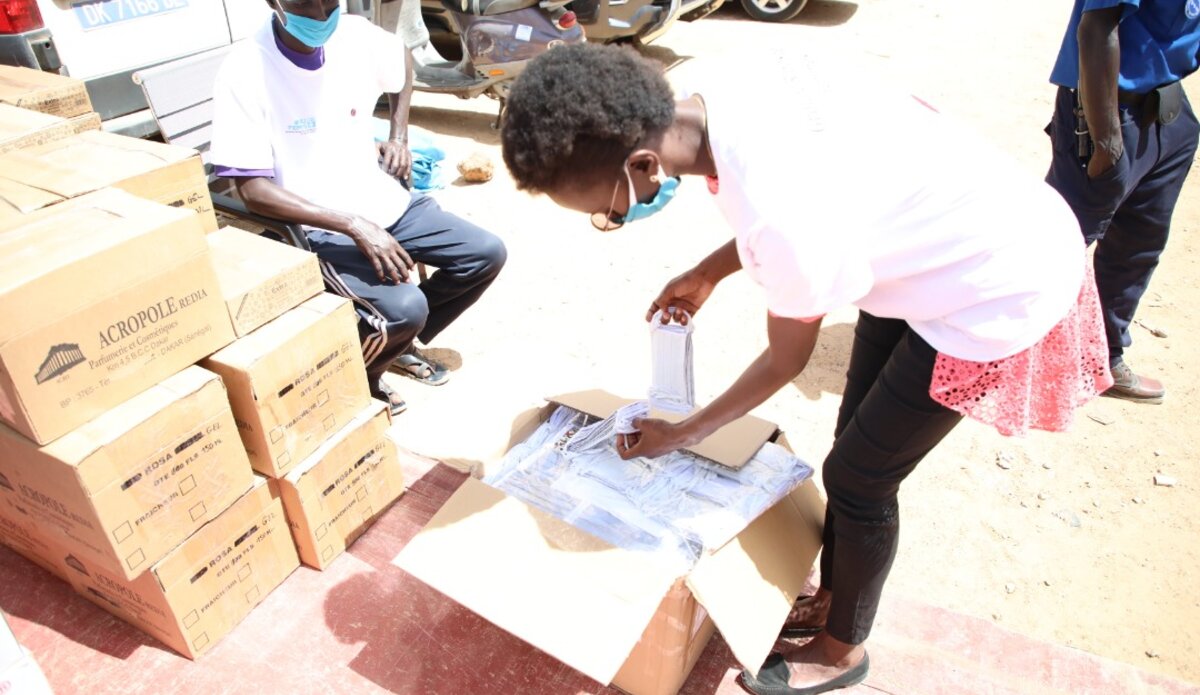Women, a centerpiece in the fight against COVID-19 and its effects
2020, is a symbolic year for gender equality and the empowerment of women. Indeed, it has been twenty years since the United Nations Security Council adopted Resolution 1325 on the participation of women in peace and security efforts. 2020 will be forever remembered, with the COVID-19 pandemic which, beyond being a health crisis, raises profound economic, social and security challenges. This pandemic has had harmful effects on the populations, particularly the most vulnerable, such as girls and women.
COVID-19 pandemic impacts women
Like everywhere else in the world, it should also be noted that an increase in domestic violence against women, exacerbated by the fall in income due to confinement
According to a UN policy brief on the impact of COVID-19 on women, published on 9 April 2020, nearly 60 per cent of women around the world work in the informal economy, earning less, saving less, and at greater risk of falling into poverty. Women make up more than 70 per cent of the world’s health workers, and women’s unpaid care work has increased due to school closings and the increased needs of the elderly.
At the regional level, a survey on the impact of COVID-19 on the Gender, Women, Peace and Security agenda conducted in May by the United Nations Office for West Africa and the Sahel (UNOWAS) , in collaboration with the National Representatives to the 17 member countries of the Women, Youth, Peace and Security Working Group in West Africa and the Sahel (WYPSWG-WAS) reveals that men are more affected by COVID-19 than women and that the economic impact is strongly felt by those who work in the informal sector.
Like everywhere else in the world, it should also be noted that an increase in domestic violence against women, exacerbated by the fall in income due to confinement, curfew or reduction in working hours. The survey also found that the school closures have wiped out efforts to keep girls in school.
Women and youth at the heart of the response to COVID-19
The Secretary-General of the United Nations has urged all governments to make the prevention and redress of violence against women a key component of their national response plans. Guterres also encouraged « governments to put women and girls at the centre of their efforts to recover from COVID-19”. « That starts with women as leaders, with equal representation and decision-making power,» he declared.
Along the same lines, the Special Representative, Mohamed Ibn Chambas, urged the countries of the sub-region to «take all the necessary measures to place young people and women at the heart of decision-making and ensure their participation in the response process to the spread of the disease. «
The Under-Secretary-General for Political Affairs, Rosemary A. DiCarlo, the Under-Secretary-General for Peace Operations, Jean-Pierre François Renaud Lacroix, and the Executive Director of the United Nations Entity for Gender Equality and the Empowerment of Women, Phumzile Mlambo Ngcuka, jointly launched an appeal recognizing the central role that women play in peacebuilding, particularly through their efforts to make a global ceasefire possible. According to them, the COVID-19 pandemic is a strong signal and the world cannot cope with wars and the pandemic at the same time. “When women are involved, the prospects for lasting peace are better. Women are often mediators between communities, and between governments and their citizens,” they said.
This article is published in the UNOWAS Magazine N11 -> Download here
 UN
UN


